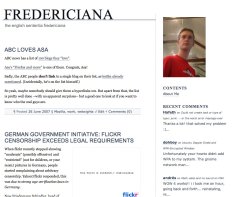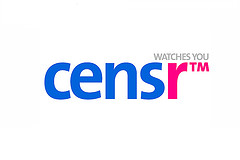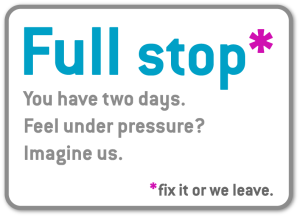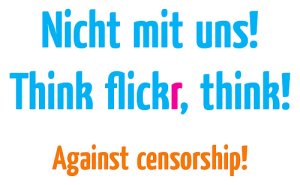 In Japan kann man ein Kopfkissen kaufen, das wie ein Männertorso mit einem Arm geformt ist. Weibliche, japanische Singles atmen auf: Niemand mehr, der schnarcht oder Ansprüche stellt ;)
In Japan kann man ein Kopfkissen kaufen, das wie ein Männertorso mit einem Arm geformt ist. Weibliche, japanische Singles atmen auf: Niemand mehr, der schnarcht oder Ansprüche stellt ;)
New look
Today, I decided to give my blog a new look -- mostly because I was tired of the old, white, colorless layout. After a little while, I found a nice one in the Wordpress theme directory (so, props to the guy who designed this :) )
Old (left) vs. new (right):


If you find something not working, or you want to let me know that the new layout sucks even more than the old one ;) feel free to leave a comment.
Budweiser Commercials, Patriot Edition
Budweiser Werbespots sind immer wieder sehenswert. Da spielen sie Schere, Stein, Papier, oder ein Esel bewirbt sich bei den Budweiser Clydesdale-Pferden um einen Job.
ABC loves Asa
ABC news has a list of 100 blogs they "love".
Asa's "Firefox and more" is one of them. Congrats, Asa!
Sadly, the ABC people don't link to a single blog on their list, as kottke already mentioned. (Incidentally, he's on the list himself.)
So yeah, maybe somebody should give them a hyperlinks 101. But apart from that, the list is pretty well done --with no apparent surprises-- but a good one to look at if you want to know who the cool guys are.
Starbucks kommt nach Karlsruhe
Cool, Starbucks kommt endlich nach Karlsruhe. Heute habe ich folgende Anzeige in der Zeitung gefunden:
German Government Initiative: flickr Censorship Exceeds Legal Requirements
 When flickr recently stopped showing "moderate" (possibly offensive) and "restricted" (not for children, or your mom) pictures in Germany, people started complaining about arbitrary censorship. Yahoo!/flickr responded, this was due to strong age verification laws in Germany.
When flickr recently stopped showing "moderate" (possibly offensive) and "restricted" (not for children, or your mom) pictures in Germany, people started complaining about arbitrary censorship. Yahoo!/flickr responded, this was due to strong age verification laws in Germany.
Now Friedemann Schindler, head of jugendschutz.net (which is the German government's initiative for youth protection on the Internet), responded to yahoo's claims, arguing that yahoo's "solution" "exceeds the legal requirements", because as a hosting provider, they are only required to remove illegal content once they are notified of its existence. (Which is exactly what I said about the situation in an earlier post).
A while ago, flickr responded to the censorship claims by allowing Germans to remove the "moderate" restriction in the preferences, while "restricted" stays filtered for German accounts. While this is a step into the right direction (at least we can see average vacation photos again!), at times flickr still looks like this (yes, this is a real screenshot):

If flickr wants to be (or become) "family friendly", I appreciate them banning hard pornography pictures from their platform (this is --really-- not what flickr is for). But this is a change that has to happen in the upload policies (and be enforced accordingly) and not by implementing a highly flawed filtering mechanism that relies on the uploaders' feelings about their own pictures.
After all, while yahoo keeps hiding many entirely harmless pictures from all Germans' sights, other --legally much more critial-- pictures, for example of WW2-nuts reenacting Third Reich scenes, stay unfiltered and readily available for the general public.
Weltsicht, leicht gemacht
"Spire Christian Comics" ist eine amerikanische, christliche Comicbuchserie. Die Bücher strotzen nur so vor christlich-puritanischer Romantik, gepaart mit tief-amerikanischem Patriotismus.
flickr zensiert Deutschland

Das US-Fotoportal Flickr vergrault mit seiner deutschen Lokal-Version die Kunden: Für sie sind jetzt alle Bilder gesperrt, die man eher ungern der Oma, Kindern oder Arbeitskollegen zeigen würde. Einspruch zwecklos. Deutsche Nutzer rufen zum Boykott.
On Flickr Censorship in Germany
As always on my blog, I am speaking for myself only.
Yesterday, flickr launched their German service and at the same time, disabled access to pictures marked as "moderate" as well as "restricted".
flickr (speaking through staff member heather) justifies this as follows: "The central problem is that Germany has much more stringent age verification laws than its neighboring countries and specifies much harsher penalties, including jail time, for those with direct responsibility"
flickr users in Germany (and surrounding countries) complain about flickr's censorship policy.
What seems to have happened here is a misinterpretation of German law. (But please remember that IANAL, I am only spending 20% of my studies on law, not 100%)<!--more--> The law they are probably refering to is § 184 in the German criminal law ("spreading pornographic material"). According to this, someone is to be fined, or punished with a jail sentence of up to a year for showing/giving/selling pornographic material to a minor. This is the case on the internet as well, unless there are "effective measures" in place to keep minors from accessing the material.
There are several notes to make: In order for this law to be applicable, the content in question has to be pornography. The German definition for pornography is rather restrictive: It is material exclusively or most predominantly intended to cause sexual arousal in the viewer. This means that events like "Nipplegate" (and photos of them) are a non-issue here, legally (just like in many other places in the world). Also for example, showing a woman in the shower, as a TV commercial for shower gel, is perfectly acceptable. When it comes to act photography, the distinction is harder of course but the decision leans towards "art" if the aesthetic aspects of a picture are emphasized (art is protected by the German constitution).
Moreover, according to a commentary on the law in question, for a content provider on the internet (like flickr) to get punished, it is not enough if they could have assumed there might be such content on their page. Instead, positive knowledge is required, i.e. they need to know about a particular illegal picture, (probably) leaving them with the option to take it down ASAP when they find it or are informed about it.
In any case, "Possibly not suitable for the general public", which is the requirement for flickr's "moderate" setting, is about as far away from these requirements as it gets. Even "restricted" pictures (in flickr terms: "content you probably wouldn't show to your mum, and definitely shouldn't be seen by kids") are at least not generally violating German laws (quite the contrary, I assume).
Based on this, it doesn't seem surprising to me that a lot of paying, German customers (like me) are quite upset about flickr's most unprofessional way to handle a possible legal issue: by deciding to block many, many entirely harmless pictures from their sight. Some of the users even threaten to leave flickr very soon if they don't solve the problem within the next fourtysomething hours:
 And while I am not as strict about the "two days" as others, I am certainly not going to prolong my flickr "pro" account if this absolutely unacceptable content filtering stays in place.
And while I am not as strict about the "two days" as others, I am certainly not going to prolong my flickr "pro" account if this absolutely unacceptable content filtering stays in place.
I think we can at least expect Yahoo to pick up a phone and call a German lawyer who can explain the law to them. When I look at how much their official statements sound like "we will all go to jail!", they can't possibly have done that.
And worst of all, at the moment, Yahoo/flickr is massively damaging the reputation of the German legal system in the world by making people believe the core of the problem is Germany's fault ("Oh Germany. Here we tried so hard to get past the whole "Hitler" thing and then we were so proud of you for tearing down your big ol' wall, but now you come up with this and we have to be worried all over again." is one of the nicer quotes here).
I hope this text helped some of my international friends (and other interested readers) understand the issue some more and maybe it keeps them from getting a wrong impression about Germany and its laws.
(Note, again, I am not a lawyer so none of this is legal advice.)
Target vs. Wal-Mart
If Apple was Target, Microsoft would be Wal-Mart.
Joel on Software about Font Rendering on Windows vs. OS X. Interesting how their different algorithms sacrifice font character for crispness and vice versa.

